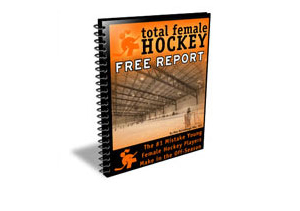What Are You Entitled To?
It seems that now, more than ever, players and kids feel entitled
to have what they want when they want it – no questions asked.
It’s like they think the world owes them something and they don’t
need to put in the time & effort to get what they want. If you put
this in perspective of a player – how might she handle being beat
out of a spot on the first power-play unit by a teammate? An
entitled player will come up with a million excuses for why they
deserve that ice time more than their teammate instead of fighting
to get their position back.
I know that not all kids are like this. But I have seen more and
more players like this in recent years. Let’s be honest, there is
probably one or more players on your team this year who don’t put
in the work, but expect to reap all the rewards that everyone else
gets. They think they are owed equal ice and opportunity even
though they are going through the motions.
The irony of this is that one of the driving forces behind an
entitled player feeling like they are “owed” something is that they
don’t feel ownership of what they are a part of.
I’ll give you a simple example. Growing up, my mom used to get on
my case constantly about keeping my room clean (I really don’t
think it was that bad – but I’m a little biased). So when I bought
my first place a few years back and she came over to visit, she was
surprised at how clean it was. The reason is simple – I took great
pride in keeping my place clean because I actually owned it. When
you own something, you usually don’t take it for granted.
Now let’s be clear – feeling ownership of something doesn’t
necessarily mean that you actually own it. According to the authors of
a great book called “The Entitlement Trap”, ownership can be felt in 3 ways:
1) By working FOR something: When players have to work hard to earn
ice time (and they are rewarded for it), they are sure to feel more
ownership of that success. At this time of year, coaches may
reward hard-working, disciplined players with more penalty kill
time or the opportunity to be on the ice to protect a one goal lead
when there is less than a minute left.
2) By working ON something: Let’s say your team works hard on a new
defensive zone system or a new set-up on the power-play and you use
that system to beat an opponent that you’ve never come close to
defeating before. It took everyone being on the same page and
buying into that new system to have success with it – and the team
should feel a real sense of ownership for that success as a result.
3) By working WITH something: Every team has issues that pop-up
between teammates throughout the year. Whether it happens on the
ice or off the ice, issues between teammates can be destructive
within the team setting. If instead of taking sides, ignoring the
problem or having the coach deal with it exclusively, the team
works WITH each other to resolve the problem, they are likely to
feel a great deal more ownership of the success of the team in the
long run.
Notice that all of these involve doing WORK. Nothing worth having
ever comes easy. All of the above points are examples of players
working together as a team. When you do the WORK, you feel more
OWNERSHIP which then leads to you taking more RESPONSIBILITY for the
success of the team.
And isn’t that we all want as coaches and parents?
We want our kids and players to take responsibility for their own
success. That doesn’t mean that we don’t have to help them along
the way, but when a player works for ownership and takes
responsibility, they are very unlikely to show signs of
entitlement.
Ownership must be earned, not given. When players feel ownership
of and take responsibility for the success of the team, it
increases their self-confidence, self-discipline and their
self-motivation. And these are exactly the things that we all want
our players and kids to have.
Entitlement is an issue that can arise in any aspect of a young
player’s life. Hopefully, their experiences being part of a true team,
who WORKS together for what they want as a group, will help them take
the ownership and responsibility that will translate into on the ice,
in the classroom and in life in general.
Work Hard. Dream BIG. Take Ownership.
Your friend and coach,
Kim
Kim McCullough, MSc, YCS
Director, Total Female Hockey

